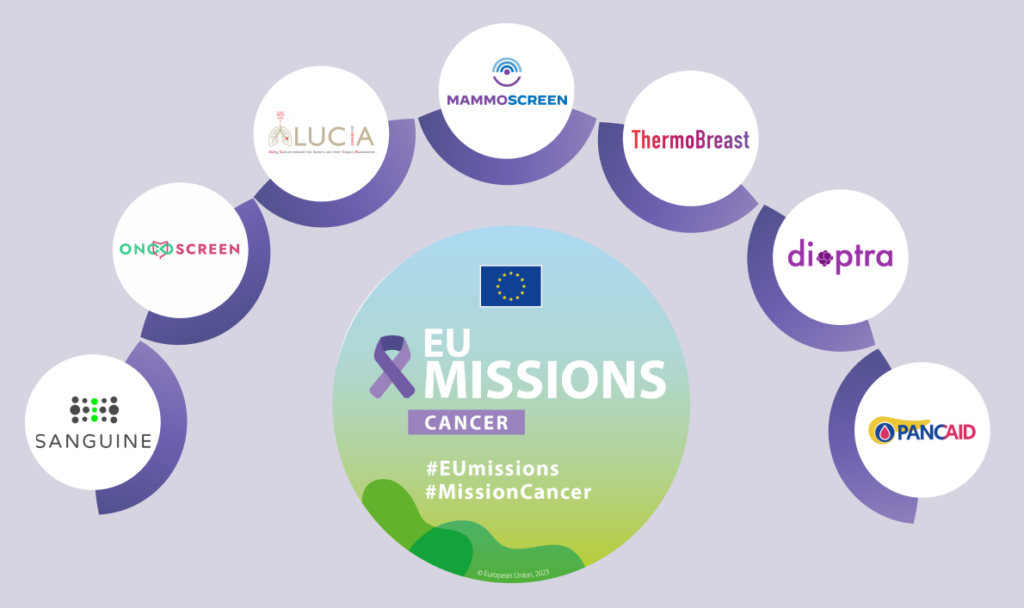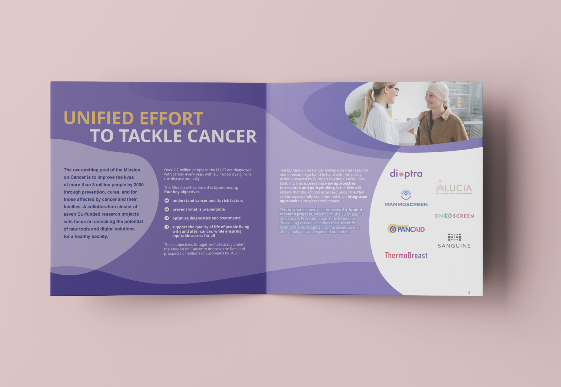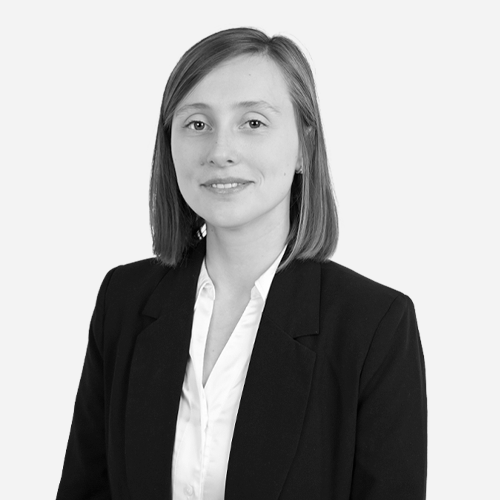Planning Cancer Mission cluster activities in your Horizon Europe proposal
21st May 2024 at 5:24 pm
The concept of mission-oriented research and innovation has been gaining considerable attention for several years now. The reports by Mariana Mazzucato, Professor in the Economics of Innovation and Public Value at University College London, sparked policy discussions both at the European and national levels. In 2017, the concept of “missions” was formally introduced during debates about the orientation of the EU’s future Research & Innovation (R&I). Its goal was to boost multilevel research cooperation and achieve significant progress in five key areas: fight cancer, adapt to climate change, protect seas and rivers, promote carbon-neutral cities and foster soil health.
Missions refer to specific, long-term goals that guide the selection of projects funded by Horizon Europe. In September 2019, the first Cancer Mission Board, comprising 15 appointed high-level experts in the field, started to work on defining the objectives and methods for the Cancer Mission. This effort resulted in a plan published in June 2020, outlining a shared vision for the mission and its implementation. The Board identified five critical focus areas:
- Understanding
- Prevent what is preventable
- Optimise diagnostics and treatment
- Support quality of life
To address the objectives of the Mission on Cancer, projects selected for funding are united in clusters, which allows their participants to collaborate within those to leverage EU-funding, increase networking across sectors and disciplines, and establish a portfolio of Cancer Mission R&I and policy actions. These clusters align with the Mission’s objectives and are expected to cooperate in the following areas of collaboration:
- Data Management
- Research & Innovation
- Communication & Dissemination
- Citizen Engagement
- Addressing inequalities
- Research Capacity Building
- Cancer Mission Hubs
The idea behind the project clustering activities is to increase the impact of the projects by promoting synergies and avoiding overlaps.
Sustainable and efficient approach – the overview of the established clusters
To date, there are four Cancer Mission clusters in operation, each with a dedicated portfolio of approved projects from previous calls. These are over 50 projects grouped across 18 different clusters since the start of the Cancer Mission clustering framework.
For the 2021 and 2023 Horizon Europe Cancer Mission calls, we at accelopment have been involved in two cluster projects, ThermoBreast and GLIOMATCH. These projects fall under the cluster of “Prevention and Early Detection” and “Understanding,” respectively.
Based on our experience with these two Cancer Mission projects, we have identified several key points for clustering activities during proposal writing and project implementation. Collaboration across clusters is facilitated by the European Health and Digital Executive Agency (HaDEA), the managing body for all health-related projects within Horizon Europe. As part of their requirements, HaDEA requests several cluster-specific deliverables to be achieved in the projects, which typically include the following:
- Data Management Plan (common chapter)
- Initial common work plan for scientific collaboration under the cluster
- Annual cluster meeting report (the meeting is hosted by one of the cluster projects upon agreement, preferably in an in-person format)
- Annual Policy briefs
- Common video and/or a common cluster brochure
- Addressing inequalities recommendations and
- Citizen engagement summary report
All cluster projects are expected to contribute to these deliverables with one project and its representative in the lead, resulting in one unified document. While most of these deliverables fall under the communication and dissemination work package, there may be other non-mandatory activities that projects can agree upon to further drive collaboration within a particular collaboration area. For example, in the “Prevention” cluster in the ThermoBreast project, our partners held an internal workshop on Data Management and we also created a newsletter to inform the general public about the cluster’s projects and their synergies. In GLIOMATCH, we suggested organising an event directory to identify in-person and online events that are of relevance to the cluster projects. These activities are meant to complement the required deliverables and foster a more cohesive and effective clustering approach.
Our experience in the “Prevention” cluster: ThermoBreast
In late 2022, the Horizon Europe initiative launched a call for proposals titled “Developing Innovative Methods and Technologies for Early Cancer Screening”. From this call, 12 projects were selected and awarded a total funding of €125.6 million in support of the EU Mission on Cancer. Among these projects, seven have been grouped together under the “Prevention and Early Detection, including Screening” cluster. Its members include DIOPTRA, LUCIA, MAMMOSCREEN, ONCOSCREEN, PANCAID, SANGUINE, and ThermoBreast. Recognising that preventing cancer is the most effective and cost-efficient long-term strategy for controlling the disease (it is known that 40% of cancers could be prevented), the cluster’s focus is on developing personalised approaches for understanding cancer and improving existing prevention programs, while also promoting general health literacy among EU citizens. The cluster’s collaborative efforts begin with establishing a shared work plan for scientific collaboration. This plan is to be discussed with all project coordinators and members of HaDEA during the cluster kick-off meeting and is later to be submitted as a required joint deliverable. To focus on each area of collaboration with its specific objectives and tasks and put them into motion, the projects are to set up dedicated working groups.
The ThermoBreast consortium partners, for instance, have taken the lead in the Data Management working group, successfully coordinating the development of a joint Data Management Plan chapter that addresses data standards, validation, protection, and exchange approaches for the entire cluster. Another key working group that has received active support from accelopment is Communication and Dissemination. Our team has organised and facilitated the process of sharing resources and coordinating efforts. accelopment’s communication experts developed a cohesive visual identity for the cluster, which proved to be an effective tool for establishing a strong and recognisable cluster’s digital presence. We also supported the setup of the common channel, a dedicated LinkedIn page, to reach out to a wider audience and increase the visibility of the cluster. Other activities include the creation of a cluster video, brochure, and newsletter that targets the general public. Furthermore, each cluster project has a dedicated webpage with information about the “Prevention” cluster on their websites. Our partners from Cancer Patients Europe (CPE) have been involved in two working groups, Citizen Engagement and Addressing Inequalities. As a patient advocacy organisation, they have been contributing their knowledge and expertise to the shared set of recommendations for effective engagement of the citizen target groups and reducing inequalities and limited access to cancer care by providing their inputs to the relevant joint reports and summaries.


Our experience in the “Understanding” cluster: GLIOMATCH
GLIOMATCH is one of the six projects from the “Understanding” cluster funded under the Horizon Europe Cancer Mission 2023 call, under the topic “Addressing poorly understood tumour-host interactions to enhance immune system-centred treatment and care interventions in childhood, adolescent, adult and elderly cancer patients”. Together with ARTURO, HIT-GLIO, MULTIR, THRIVE, and SPACETIME, the GLIOMACH project will be looking for synergies to better understand the development of cancers in a broad sense – the purpose of this is to create a basis for developing effective cancer prevention strategies.
The collaboration among the projects was initiated in April 2024 through a kick-off meeting led by the cluster’s Project Officer. The cluster has split the leadership of collaboration areas amongst the projects and kick-started work on the common work plan for scientific collaboration, which is the cluster’s first common deliverable. GLIOMATCH partners, KU Leuven (project coordinator) and CPE, will take the lead in the data management collaboration area and co-lead the addressing inequalities area respectively. At this early stage of the cluster’s work, the accelopment team has leveraged our previous experience in the ThermoBreast cluster to successfully coordinate and facilitate the first brainstorming sessions on common cluster activities. GLIOMATCH will be represented by its partners in each cluster collaboration area. The accelopment team will contribute to the communication and dissemination working group by using our learnings and in-house knowledge to help create a cluster identity and to promote the cluster’s activities through GLIOMATCH’s communication channels.
Overall, our experience so far shows that cluster collaboration is beneficial in effectively defining shared problems and finding potential collective solutions, harmonising research methods, and setting priorities for enhancing both scientific and policy outcomes. Importantly, this approach avoids the clutter of multiple individual projects and allows future initiatives to inherit best practices at the project, cluster, and Mission levels.
A strong and reliable partner by your side for your Cancer Mission project
The Cancer Mission is a crucial area of research that requires dedicated funding and support. If you are embarking on a proposal for the Cancer Mission and are seeking support, our team has knowledge and expertise in successfully managing such projects. From the first page of a proposal to a successful submission, we can address the Cancer Mission specifics to enable the success of clustering activities in your project. With our extensive knowledge gained from managing numerous successful projects in the field of health under the Horizon Europe programme, including COVend, GENEGUT, EDiHTA, MyPath and EU PAL-COPD, we are fully equipped to guide and assist you in project management and communication. Let us be your reliable partner on this journey to make a significant impact in the field of cancer research. Get in touch!

Dr. Eva Avilla Royo
Research & Innovation Project Manager

Anastasiia Aksonova
Project Manager Communications
